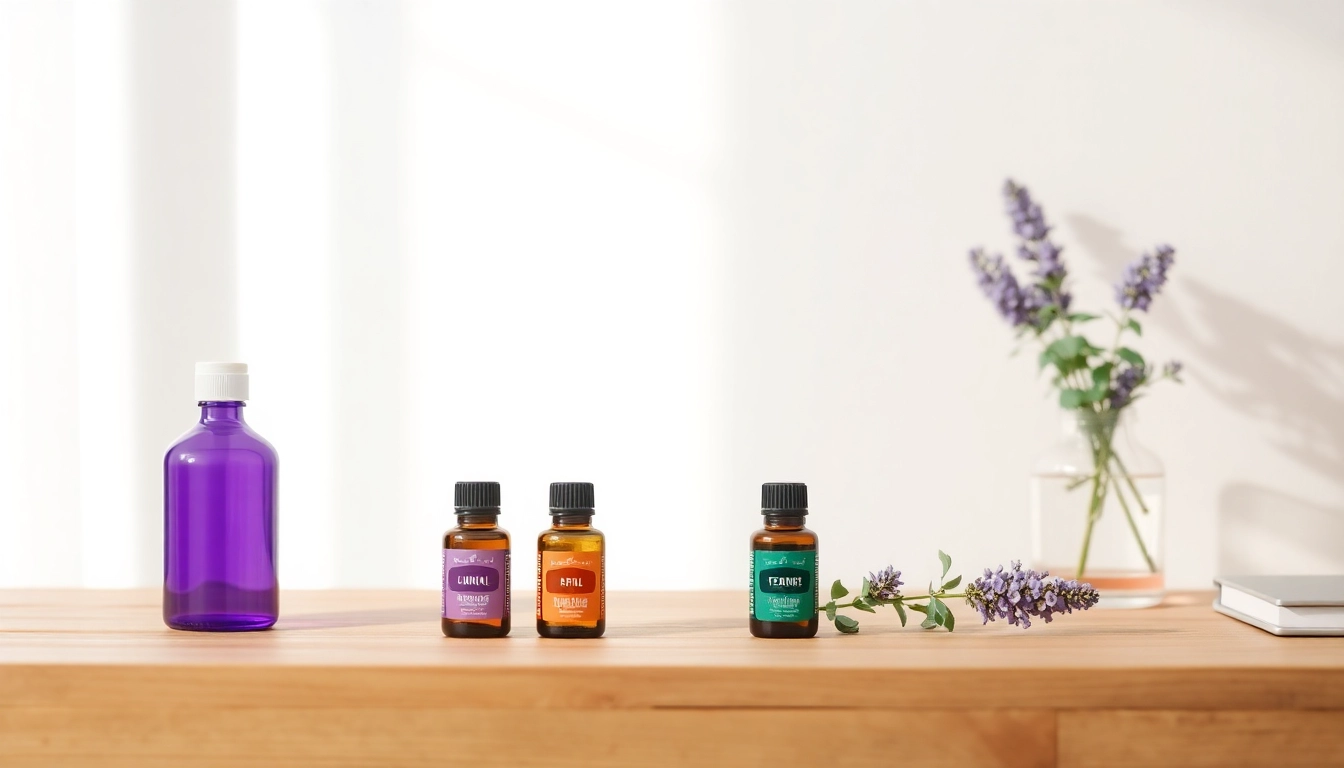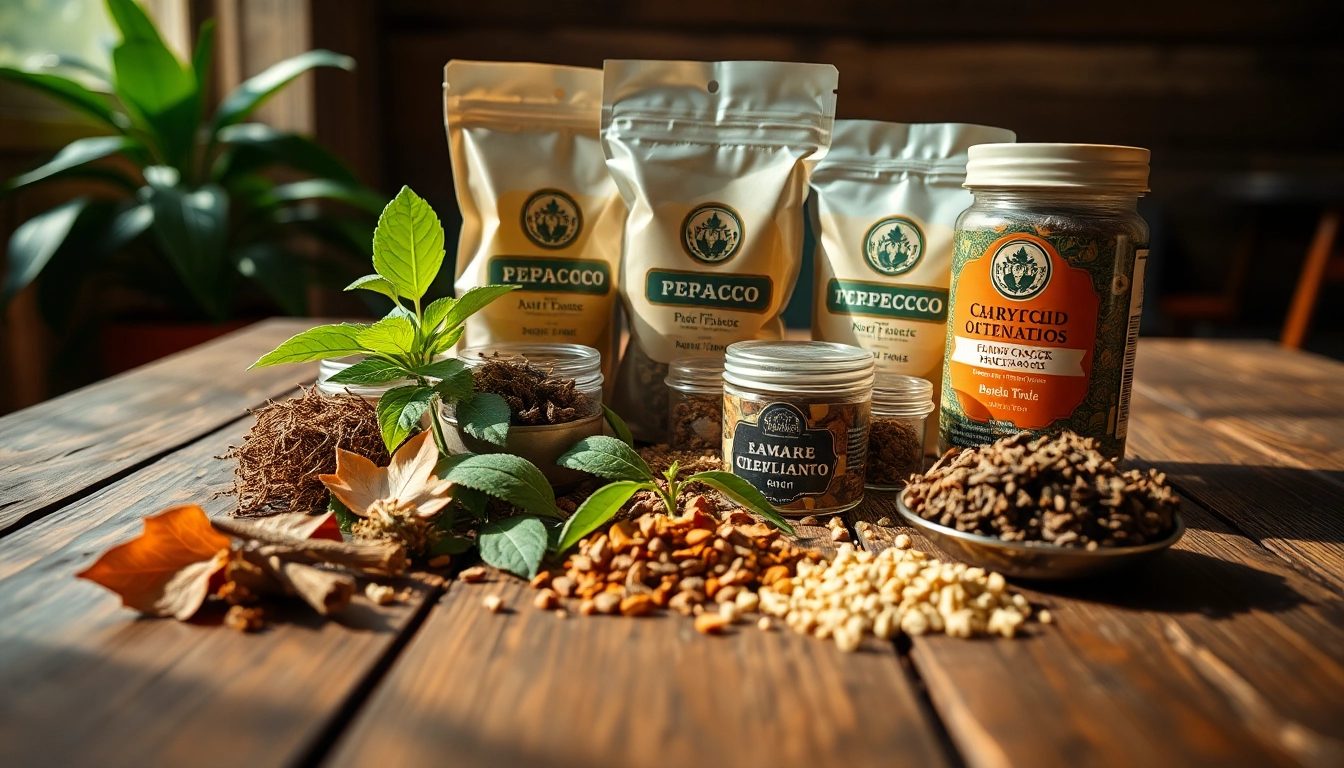Understanding Essential Oils and Their Benefits
What Are Essential Oils?
Essential oils have been revered for centuries for their aromatic and therapeutic properties. They are highly concentrated extracts obtained from various parts of plants, including leaves, flowers, roots, and bark. The extraction process often involves steam distillation or cold-pressing techniques that preserve the plant’s natural compounds, resulting in a potent oil that carries the plant’s scent and benefits. Unlike vegetable oils, essential oils do not have fatty components, making them ideal for therapeutic use in aromatherapy, natural remedies, and personal care. For those looking to delve deeper into the incredible world of essential oil, understanding their definitions and properties is crucial.
The Science Behind Aromatherapy
Aromatherapy is a holistic healing practice that utilizes essential oils to promote physical and emotional well-being. The science behind it lies within the olfactory system, the part of our brain responsible for smell. When we inhale essential oils, their aromatic molecules travel through the nasal cavity and interact with the olfactory receptors, stimulating the brain’s limbic system. This influence can evoke emotional responses, enhance moods, and even trigger memories. Research studies indicate that certain essential oils can lead to reductions in stress, anxiety, and depression, highlighting the profound connection between scent and emotional health.
Popular Essential Oils and Their Uses
Numerous essential oils are celebrated for their myriad benefits. Here are a few popular options:
- Lavender: Renowned for its calming properties, lavender oil is often used in sleep aids and relaxation blends.
- Tea Tree: An essential oil with antimicrobial properties, tea tree oil is commonly used for skin irritations and acne treatment.
- Peppermint: Known for its invigorating scent, peppermint oil can enhance focus, alleviate headaches, and improve digestion.
- Eucalyptus: Often used for respiratory issues, eucalyptus oil has decongestant properties and can be effective in relieving cold symptoms.
- Lemon: Packed with antioxidants, lemon oil can elevate mood and is often incorporated into natural cleaning solutions due to its disinfectant qualities.
How to Choose Quality Essential Oils
Identifying Pure Essential Oil
When venturing into the world of essential oils, purity is paramount. Pure essential oils are derived solely from the plant source without any additives, fillers, or synthetic fragrances. To identify a quality oil, look for products labeled as “100% pure essential oil.” Additionally, reputable brands often provide details regarding the oil’s source and extraction methods.
Reading Labels: What to Look For
Labels can be an essential tool for both novices and seasoned enthusiasts. When reading the label, consider the following:
- Botanical Name: Knowledge of the scientific name helps ensure you’re getting the correct species.
- Harvesting Details: Information about the origin and harvesting method can indicate quality.
- Extraction Method: Steam distillation or cold pressing are commonly preferred methods for retaining essential oil integrity.
- Batch Number: This helps trace the oil’s provenance and can indicate quality assurance.
Brands to Consider for Essential Oils
Choosing trusted brands can significantly impact the efficacy of essential oils. Consider brands that prioritize transparency and adhere to industry standards. Some well-regarded names in the essential oils market include:
- doTERRA: Known for its commitment to sourcing ethically and sustainably.
- Young Living: Offers a wide range of blends and single oils with a strong reputation.
- Plant Therapy: Provides a great variety of oils at competitive prices, including kid-safe options.
- Rocky Mountain Oils: Sources oils with a focus on purity and quality testing.
Safe Methods to Use Essential Oils
Diffusion Techniques for Home Use
Diffusing essential oils is one of the most popular methods to enjoy their benefits. Diffusers come in various styles, including ultrasonic, nebulizing, and evaporative. Here’s how to utilize them effectively:
- Ultrasonic Diffusers: Use water and a few drops of essential oil to create a fine mist that disperses into the air. Ideal for humidifying your space.
- Nebulizing Diffusers: These don’t use water and release pure essential oil in a concentrated form, making them ideal for aromatherapy.
- Evaporative Diffusers: Use a fan to disperse the scent. Although less potent, they are portable for on-the-go use.
Topical Applications: How and Where to Apply
Many essential oils can be applied topically, but it’s crucial to dilute them in a carrier oil to avoid skin irritation. Popular carrier oils include jojoba oil, coconut oil, and sweet almond oil. Common application areas include:
- Wrist: For consistent aromatherapy throughout the day.
- Back of the Neck: Effective for stress relief and relaxation.
- Pulse Points: Behind the ears and inside elbows help to diffuse their scent in a more subtle way.
Incorporating Essential Oils into Daily Routine
Integrating essential oils into your daily routine can enhance overall wellness. Here are ways to seamlessly incorporate them:
- Morning Boost: Diffuse citrus oils in the morning for energy and a positive start to the day.
- Relaxing Bath: Add a few drops of lavender or chamomile oil to bathwater for a soothing experience.
- Cleansing Rituals: Use tea tree oil in cleaning mixtures to benefit from its antibacterial properties while freshening your space.
The Role of Essential Oils in Natural Remedies
Essential Oils for Stress Relief
Stress management is a common application for essential oils. Oils known for their calming effects, such as lavender, chamomile, and bergamot, can significantly aid in reducing feelings of stress and anxiety. Regular inhalation or topical application can help stabilize mood and balance emotions.
Boosting Immunity with Essential Oils
Essential oils possess properties that can help bolster the immune system. Oils such as eucalyptus, tea tree, and peppermint are often utilized for their antiviral, antibacterial, and antifungal qualities. Incorporating these oils into your life—whether through diffusion, topical applications, or added to incensed baths—can support your immune defenses.
Using Essential Oils for Sleep Improvement
Sleep disturbances can have a significant impact on overall health. Utilizing essential oils like lavender, valerian, and chamomile can promote relaxation and a peaceful night’s sleep. These oils can be diffused in the bedroom or applied as part of a bedtime ritual, such as a relaxing massage before sleep.
DIY Crafting with Essential Oils
Making Your Own Essential Oil Blends
Crafting your own essential oil blends can empower you to create customized aromas based on personal preferences and desired outcomes. Start with a base oil, then add complementary essential oils, keeping in mind the intended use—whether for relaxation, energy, or skin care. The following steps outline an easy blending process:
- Choose a base oil such as jojoba or sweet almond oil.
- Decide on your desired outcome; for example, relaxation could lead to a blend of lavender and bergamot.
- Use a recommended ratio, like three drops of each essential oil combined with one tablespoon of the carrier oil.
- Mix thoroughly in a dark glass container to protect against light degradation and store in a cool place.
Creating Home Cleaning Solutions with Essential Oils
Aromatherapy is not just limited to personal care; essential oils can also enhance cleaning solutions. Oils like lemon, tea tree, and eucalyptus have antibacterial properties, making them perfect for homemade cleaners. Here’s a simple recipe for an all-purpose cleaning solution:
- Mix two cups of water with one cup of white vinegar.
- Add 10–15 drops of your chosen essential oil (tea tree or lemon work well).
- Pour into a spray bottle and shake well before each use.
Infusing Essential Oils in Beauty Products
Incorporating essential oils into your beauty routine can enhance the efficacy of products. Consider adding a few drops of tea tree oil to your facial moisturizer for its acne-fighting properties, or lavender oil to a homemade body scrub for its soothing scent. You can also craft personalized skincare products, such as lotion bars or bath salts, incorporating your favorite oils for added benefits.



